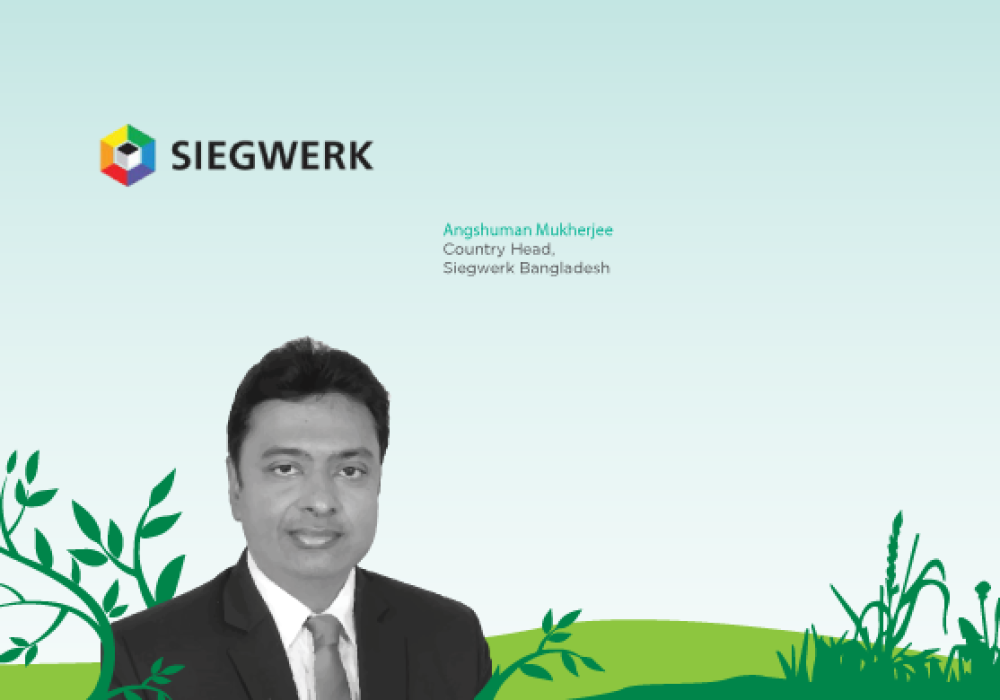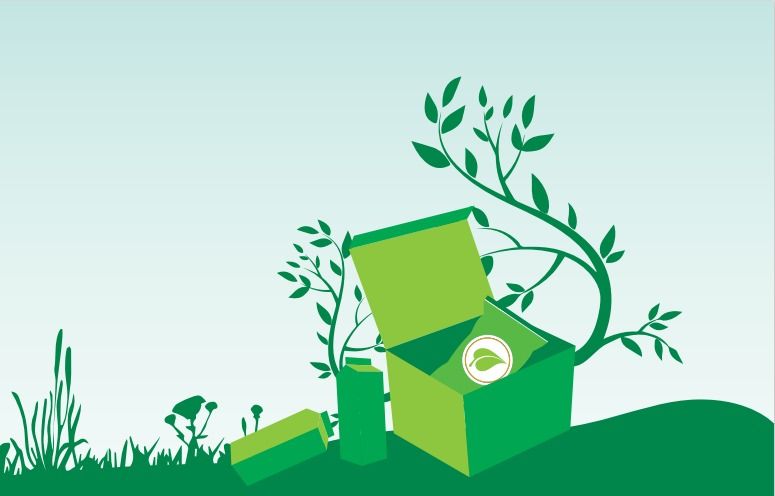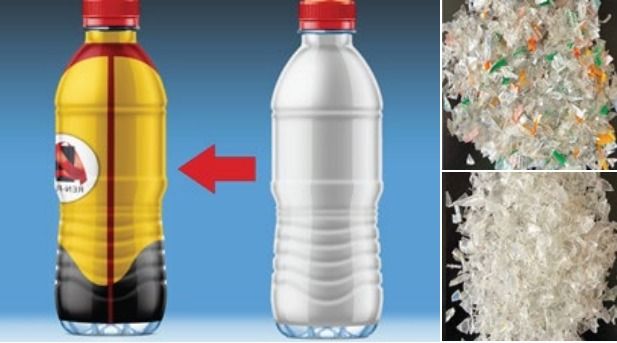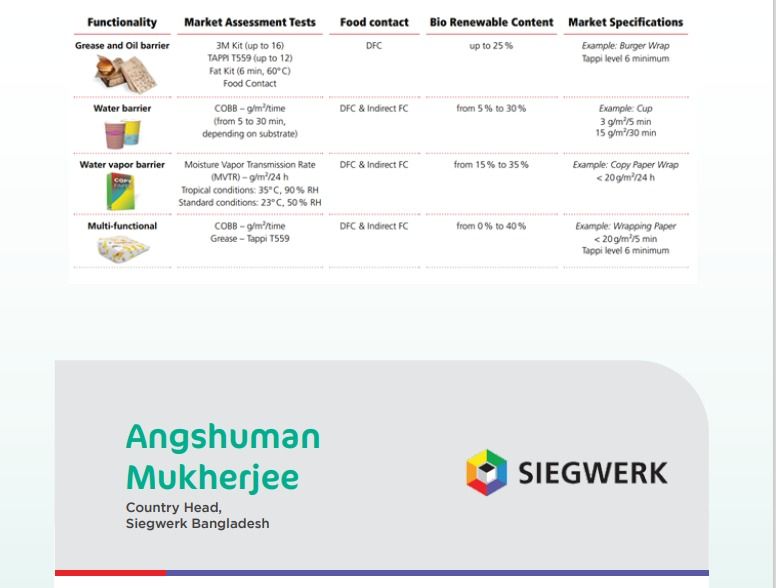- info@ficci.org.bd
- |
- +880248814801, +880248814802
- Contact Us
- |
- Become a Member
- |
- |
- |
- |
- |

The traditional life cycle of packaging results in needless levels of emissions and waste. This is because a linear economy goes only one way. Products and resources are created, used and then become waste which gets thrown out. In contrast, a Circular Economy is based on economic development decoupled from the use of finite resources, allowing for human well-being while respecting the natural boundaries of our planet. In the packaging industry, a Circular Economy is achieved by
Reducing – The first step is to reduce the use of materials, especially plastic, where possible. We can do so by eliminating packaging structures not needed for the functionality of packaging or by using renewable materials.
Reusing – If we can not sensibly reduce the material we use, we should aim to reuse the packaging as often as possible. This moves packaging from single-use consumable goods to durable goods.
Recycling – The only acceptable end-use scenario in a Circular Economy is recycling. This keeps the material and the economic value in the system.
Siegwerk leads the way towards a Circular Economy
Siegwerk has established itself as the market leader for safe and sustainable packaging inks and coatings, pioneering solutions to shift from a wasteful linear packaging model to a circular model predicated on the concepts of reducing, reusing and recycling packaging.
Sustainability is central to its business ambitions, and is underpinned by a sustainable business initiative, called HorizonNOW. This initiative has set bold targets to be achieved by 2025 in the areas of People and Communities, Operations and Supply Chain, Product Safety and Responsibility and Circular Economy. In terms of Circular Economy, our aim is to ensure that 75% of all products and services enable reusable, renewable or recyclable packaging.
“A circular economy is a systemic approach to economic development designed to benefit businesses, society, and the environment. In order to preserve the natural resources for future generations, we all need to adopt Circular Economy practices in our everyday life, be it professional or personal,” explains Shailendra Nagotkar, Head of Application Technology Flexible Packaging for Siegwerk India.

Siegwerk uses its expertise in inks and coatings to develop tailor-made solutions to meet customer needs, and those needs are increasingly related to circularity and sustainability. Just a few of the solutions Siegwerk has developed include:
De-Inking - There is increased awareness of the need to recycle packaging to create the materials needed for new packaging
However, current recyclate quality is typically poor. This is due to the unpleasant visual appearance or odor of different types of recyclates after extrusion, which can be related to ink degrading and remaining in the recyclates. This unfortunately enforces downcycling. Siegwerk’s de-inking and delamination technology enables the creation of high-quality recyclates
The de-inking and delamination primer creates a printable layer sensitive to an industrial washing progress. Inks and coatings are removed quickly and effectively, leaving clean separated plastic layers.
These remaining high-quality recyclates can be used in new packaging materials. This technology is compatible with a wide variety of packaging structures, and packaging specifications remain unchanged.Most importantly, the use of the de-inking and delamination technology aids in achieving 100% recyclability, an essential component in enabling the Circular Economy.
A practical example of this technology can be seen in de-inking of shrink sleeves. Washable crystallizable PET shrink sleeves are invaluable in increasing the yield in PET bottle-to-bottle recycling. Working in partnership with other companies in the supply chain, Siegwerk developed washable shrink sleeves based on crystallizable PET (cPET) as film printed with specially developed washable inks and primer solutions. In this way both the bottle and the shrink sleeve can go through the recycling process without the need for separation
Siegwerk’s de-inking technology has received recognition from the Association of Plastic Recyclers (APR).

Barrier Coatings for Paper and Board -
Siegwerk‘s new portfolio of UNILAC barrier coatings for paper and board includes a range of products that repel water and water vapor, oils, and greases. These barrier coatings are available and produced using natural resins and renewable raw materials whenever possible. Importantly, paper and board coated with these barrier coatings are typically repulpable, recyclable, and compostable, thereby giving paper and paperboard packaging producers the confidence that their packaging has a variety of end-of-life solutions, minimizing their impact in case of leakage into the environment (littering)
Siegwerk offers a range of barrier coating formulations to accommodate a variety of Paper & Board packaging products, including paper cups, fast food wrappers, and corrugated boxes, meeting, of course, the functional needs of the paper such as printability, flexibility, and gluability
Paperization - There is growing interest in switching from plastic to paper-based packaging, partly because paper packaging can be more circular in certain circumstances. But there are challenges to making the switch. Paper packaging can be limited in scope, which is unfortunate because it has a well-established waste and recycling stream. There is therefore a need to facilitate a wider packaging paperization scope to utilize already existing waste streams. There is a challenge in reducing shelf life limitations when going away from film-based structures. And when switching to paper, one must ensure compliance with recycling streams by avoiding unwanted/disrupting materials like PVC. Siegwerk makes this transition possible through solutions such as printable barrier coatings to improve grease, aroma and water vapor resistance, as well as Cobb value reduction coating to maintain the package structure even in moist atmospheres. These coatings replace the function usually served by plastic
As the need for circular packaging solutions grows, so too do Siegwerk’s efforts to develop innovative solutions to meet unique needs. Siegwerk’s ambition to build a truly sustainable business makes the company an ideal partner for customers seeking to realize their own sustainability targets.

Angshuman Mukherjee is currently heading the Siegwerk Bangladesh as the Country Head. He holds a Bachelor’s degree in Mathematics from Calcutta University, a Diploma in Packaging from Indian Institute of Packaging, Delhi and a Post Graduate Diploma in Marketing from the Institute of Management Studies, Delhi. Angshuman has a total industrial experience of 26 years. He has held several leadership positions with Packaging Ink manufacturing companies in India. Apart from handling responsibilities in Technology, Projects, Product Management, Key Account Management, Business Development and Sales in Coates & subsequently DIC over a tenure of 19 years, he has headed Application Technology and Exports for Flex Pack and Tobacco in Siegwerk India for the last 7 years.





